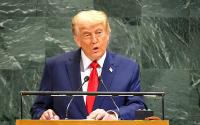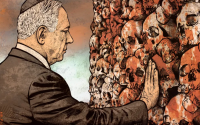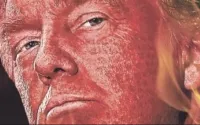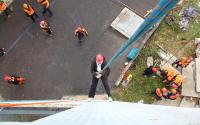13 July 2007Vincent Boland
A massive granite monument at the tip of the Gallipoli peninsula in western Turkey commemorates the 86,692 Ottoman soldiers who died fighting the Allies during the first world war.
To many Turks it also represents the moment at which the armed forces stepped forward to shape the country’s destiny. They have been doing so ever since, in one guise or another.
The latest manifestation of the military influence on political life is a constitutional crisis largely initiated by the general staff that has led to calls for an early general election to be held on July 22.
On April 27, in what has become known as “the e-coup”, the general staff issued an ultimatum on its website about the “growing threat” to Turkey’s secular republic. Since the time of Kemal Ataturk, the soldier who forged Turkey out of the ruins of the Ottoman empire, the military has seen itself as the guardian of the republic and its Kemalist principles, of which secularism – more accurately laicism, involving strict control of religious observance by the state – is probably the most important.
The ultimatum did not name names; nor did it really read like a coherent statement of principle – a fact that may account for its lack of gravitas.
But it was interpreted to mean that the imminent elevation of Abdullah Gul, the foreign minister with past links to Turkey’s Islamist movement – like the governing AKP party of which he is a member – as the next president, was not acceptable to the military high command.
This time, though, the generals may have overestimated their ability to engineer a desirable outcome.
Turks have an admiring but not uncritical relationship with their soldiers. It is said – and not just by generals – that the armed forces are the country’s most respected institution. Others say they are the most opaque, the most unaccountable, and the most self-regarding institution.
General Yashar Buyukanit, chief of the general staff – a gruff, bullish man of 67 – seems to embody the institution’s contempt for Turkish civil society (such as it is).
Few Europeans can name the head of their armed forces. In Turkey everybody knows who Gen Buyukanit is. This is to be expected: the Turkish armed forces have ousted four elected governments since 1960.
The coups have been rationalised as a necessary development that prevented something worse from happening at times of political crisis, although there is general agreement that the Latin American-style 1980 coup, with its total ban on political activity, did lasting damage to Turkey’s political development.
The “e-coup” has arguably had two unexpected – or at least unintended – developments. One is a surge in support for the AKP.
Ihsan Dagi, professor of international relations at Middle East Technical University, says: “The military got what it wanted with the ultimatum, which was to prevent Gul’s appointment as president.
“But it stirred the democratic reflex, and that has certainly increased the standing of the AKP.”
Second, it damaged the credibility of the opposition CHP, an ostensibly social democratic party that appeared to support the ultimatum. The avowedly secularist CHP is so identified with the military that it can sometimes seem like its political wing.
As Sahin Alpay, an academic in Istanbul, noted in a recent newspaper column, the party “has become a spokesman for the civilian-military bureaucracy which continues to think that the Turkish people at large are not mature enough for democracy”.
There is no question that the military has an enormous stake in the outcome of this election, for political, ideological, and even commercial reasons. Its massive economic interests, from automotive to insurance, held through the armed forces pension funds, are a pillar of the secular business establishment.
This entrenched corporate hierarchy is facing competition for capital and resources from the Anatolian entrepreneurial bourgeoisie that forms the core of the AKP’s support.
The perceived threat to secularism posed by the AKP, however, lies behind the April 27 e-coup. Gen Buyukanit declared before that event that Turkey’s next president should be “secular not just in word but in essence”.
Clearly, he and his colleagues felt that Mr Gul, whose wife wears the Islamic headscarf, did not meet those criteria. After the election, parliament is expected to try again to elect a new president, and Mr Gul has not ruled out standing.
The question in that event is whether the general staff will have anything else to add to its April 27 statement. As Prof Dagi says: “The military may be capable of learning that once they interfere in the political process they damage their own cause.”
http://www.ft.com/cms/s/d609eece-3090-11dc-9a81-0000779fd2ac.html






